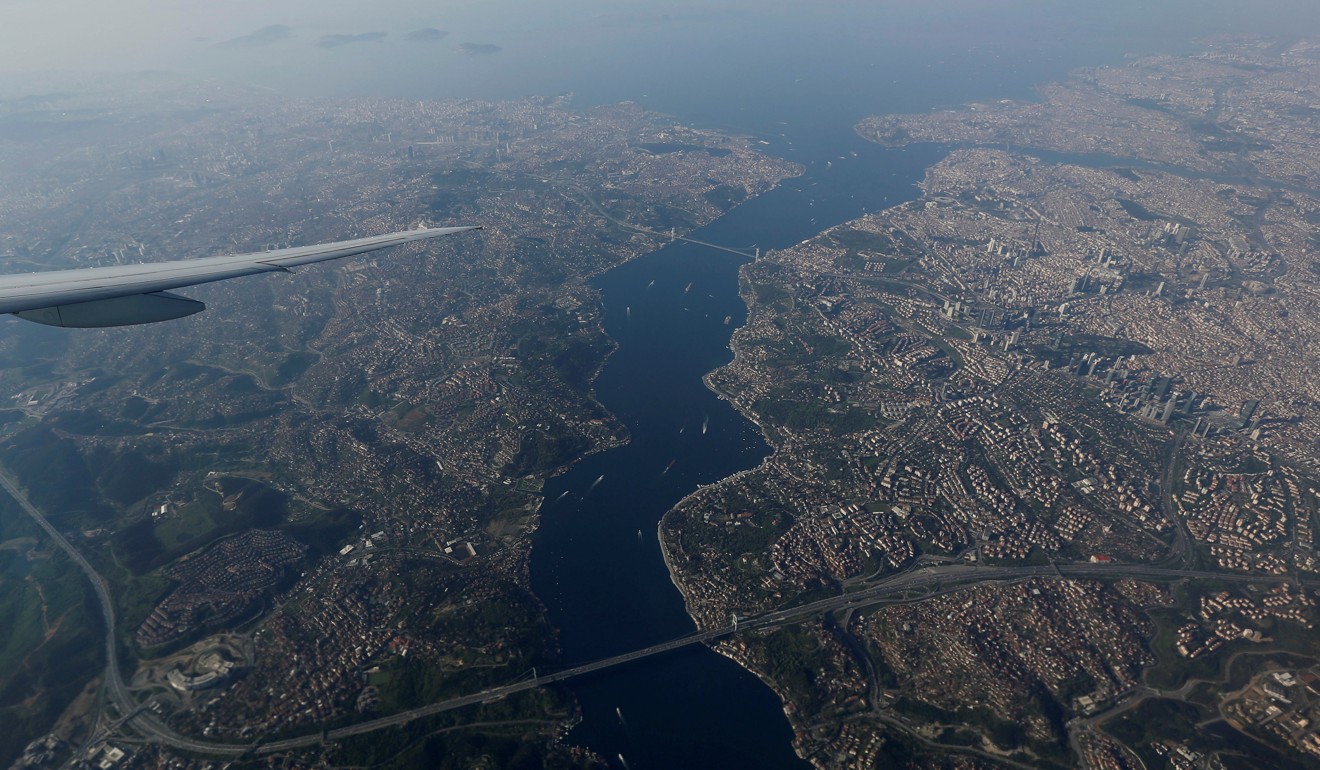
How Istanbul’s man-made canal project could trigger an arms race in the Black Sea – and why China is watching closely
The Kanal Istanbul project will not be subject to the international treaty that limits the access of warships to the strategically pivotal waters in central Europe
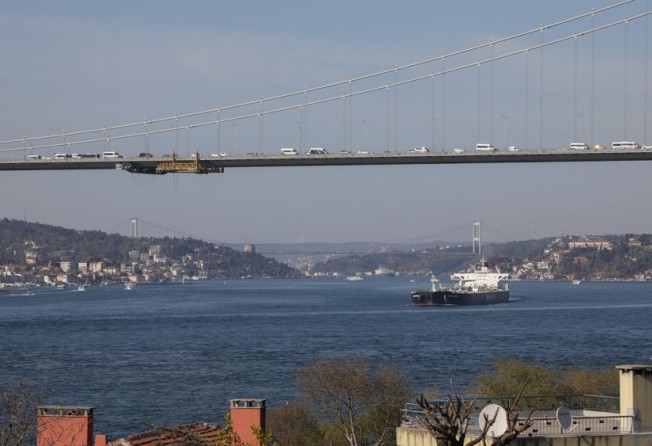
In the conservative Istanbul neighbourhood of Üsküdar, couples sit near the July 15 Martyrs bridge and sip cups of tea as oil tankers and cargo ships pass. The sight is common for the city’s residents: every day about 115 vessels cross the Bosphorus Strait.
Accidents can happen in this narrow natural waterway that divides the Turkish city’s European and Asian sides, and links the Black Sea to the Marmara Sea.
In April, a cargo ship failed to stop and crashed into an 18th-century Ottoman mansion. In 1979, two tankers collided and caused an oil spill that took weeks to remedy, damaging the environment, endangering public safety and closing down the Bosphorus.
The Turkish straits – including the Dardanelles, the Bosphorus and the Marmara Sea – are unique: they connect the Mediterranean and Aegean seas to the Black Sea states of Russia, Ukraine, Bulgaria, Romania and Georgia.
Commercial vessels and warships must abide by the Montreux Convention of 1936, which set out several rules.

It bestowed freedom of passage and navigation in the straits to merchant vessels, but applied restrictions to military vessels: non-Black Sea state warships in the straits must be lighter than 15,000 tonnes and no more than nine non-Black Sea state warships may pass at any one time and they can stay in the Black Sea for a maximum of 21 days.
Geopolitics and the valuable oil and natural gas reserves in the countries near the Caspian Sea have transformed these Turkish straits into a strategic hub. Close to 43,000 vessels crossed the Bosphorus in 2017, making it one of the busiest maritime passages in the world, even though that number has decreased in the past decade.
I would be surprised if the new canal was open to warships, it would be a serious political issue with Russia
“There is still the risk of accidents in the strait, a technical failure and the ship can go crash in the houses nearby,” said Cahit Istikbal, a pilot and president of the Turkish maritime safety association. “It could be an environmental disaster.”
When the Turkish government announced in 2011 the plan to build a new canal, called Kanal Istanbul, to relieve the congestion in the Bosphorus, questions stirred about the implications for the Montreux Convention.
Would the canal allow the passage of warships, highly restricted under the Montreux Convention, into the Black Sea?
Russia, which considers the Black Sea its strategic backyard, will want to prevent them entering the new canal.
China, Russia’s main ally, shares the same strategic views: the more strictly regulated maritime navigation is, the better.
China monitors the Black Sea with particular interest as it seeks to regulate the passage of warships and tighten its control over another strategic maritime passage: the South China Sea.
Turkish President Recep Tayyip Erdogan hailed the new 50km-long canal, which would be built on the European side of the city and link the Black Sea to the Marmara Sea, as his “crazy project”.
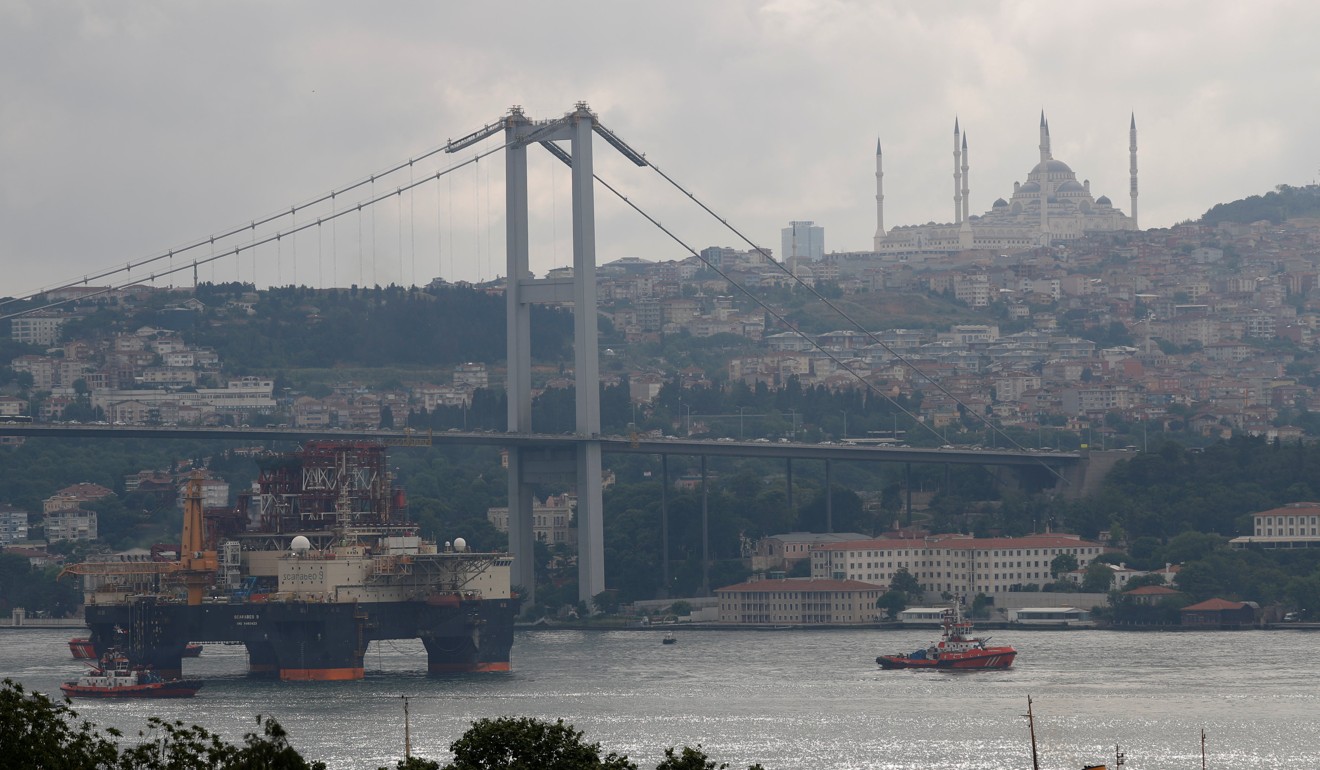
The final bill is expected to be at least US$20 billion and the project is scheduled for completion in 2023, for the 100th anniversary of the foundation of the Turkish Republic.
“The strait of Istanbul [the Bosphorus] is unique because of the Montreux Convention, which imposes limitations, particularly on passage of war vessels,” explained Nilufer Oral, from the Faculty of Law at Istanbul Bilgi University and a Distinguished Fellow at Berkeley University Law of the Sea Institute.
The Turkish strait is a natural passage, where ships have freedom of navigation. Kanal Istanbul, a man-made canal, would be subject to regulations decided by Turkey. Prime Minister Binali Yıldırım announced in January that Kanal Istanbul would not be subject to the Montreux Convention.
“The warship provision is the issue,” Oral said. “I would be surprised if the new canal was open to warships, it would be a serious political issue with Russia.”
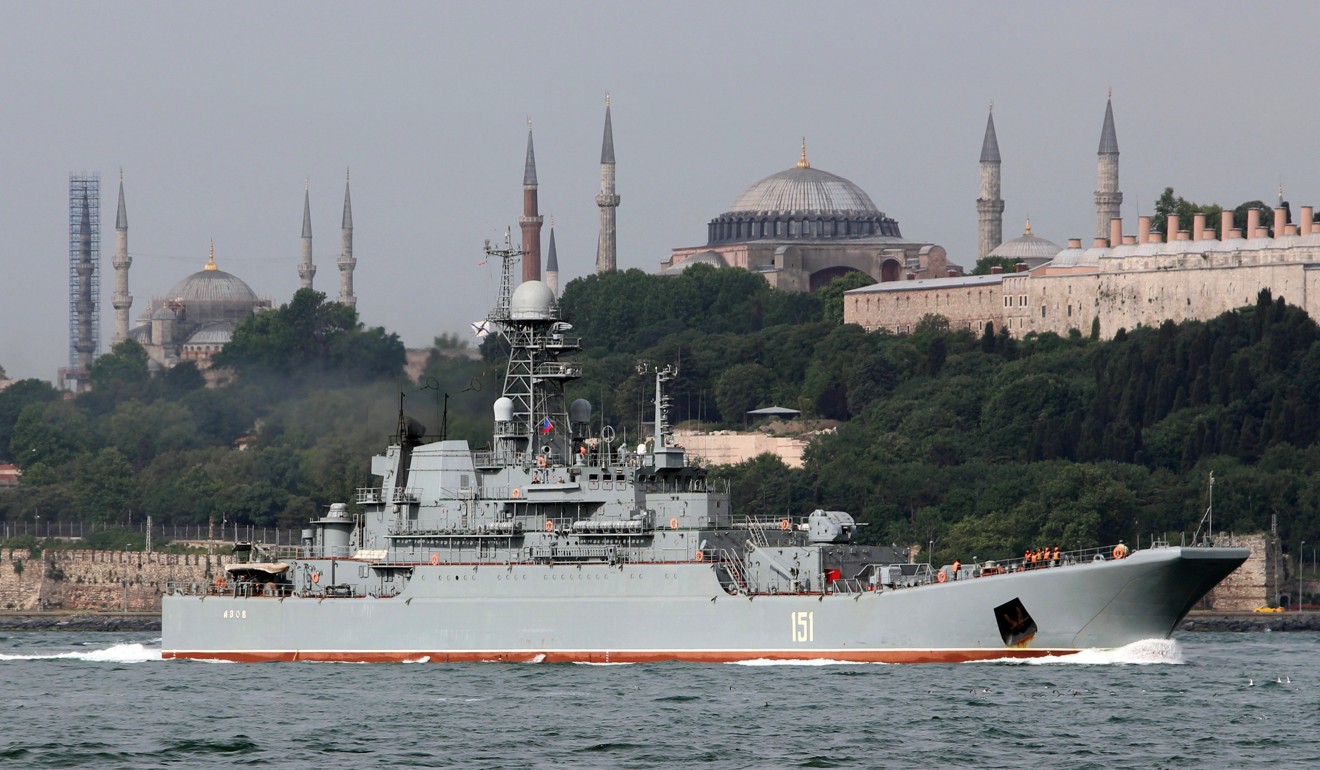
Currently military vessels are limited in number, tonnage and their duration of stay in the Black Sea. Russia will be determined to maintain those limits to keep the Black Sea secure.
However, applying the Montreux Convention to the new canal would mean amending the convention, a difficult legal process with its own ramifications.
Russia and China provide check-and-balance to the Atlantic offensive policies ... Containment of Russia means containment of China
The region is also of great interest to the United States, which recently announced it would revive its second fleet amid heightened tensions between Nato and Russia. China, which is Russia’s biggest ally, is also currently spreading its wings through a network of ports and military bases as part of its “Belt and Road Initiative” and will be closely monitoring the situation in the Black Sea.
“The Montreux Convention is a key to the Black Sea’s regional security and Russia’s defence and security,” said Admiral Cem Gürdeniz, founding director of Koç University Maritime Forum and a critic of the Kanal Istanbul project.
According to Gürdeniz, two fundamentally different visions are in play. China and Russia, two land powers, are keen to limit the rights of passage of ships in their territorial waters and by extension do not want to change the status of the Montreux Convention.
On the other hand, maritime powers such as the US, the UK and Nato advocate strongly for freedom of navigation.
“From a political standpoint, it is important for Russia not to leave the Black Sea to the maritime powers,” Gürdeniz said.
China is also watching the situation in the Black Sea. Even though the Montreux Convention is a multilateral agreement to which China is not a signatory, the spirit of the agreement has repercussions in the South China Sea.
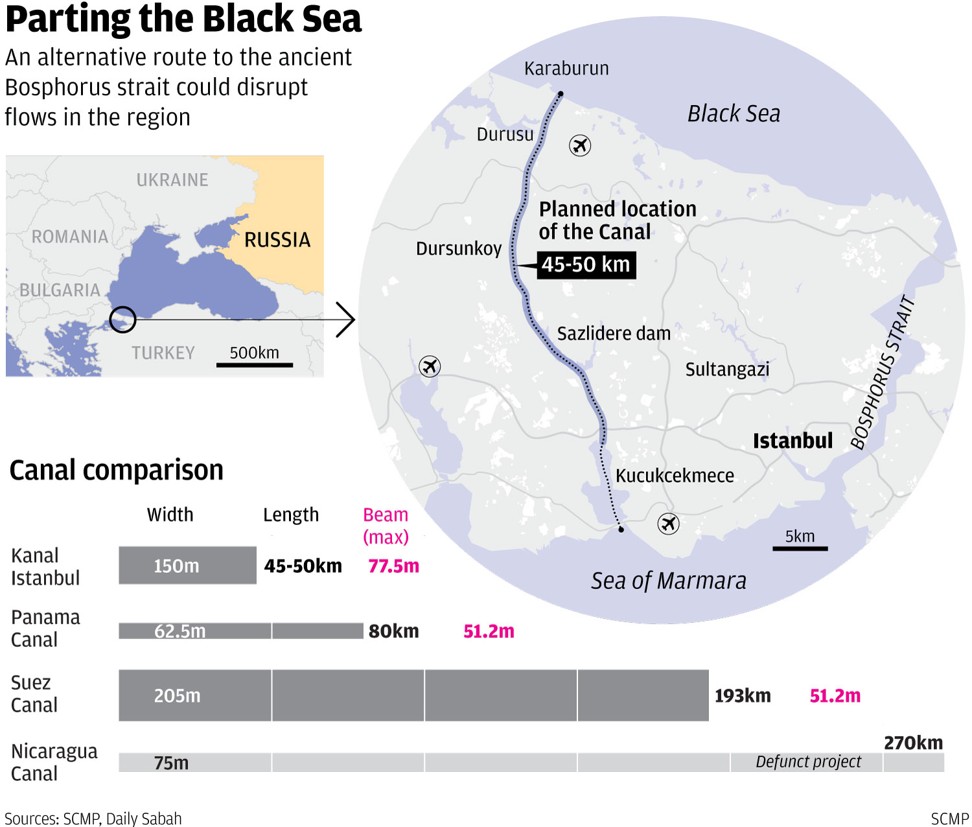
“China does not want to touch the Montreux Convention because changing its spirit is also disrupting China’s geopolitical spirit of maritime defence,” Gürdeniz said. “China is not directly involved in the Montreux Convention, but would be indirectly affected by its revision.”
China currently claims most of the South China Sea, a strategic zone where several other countries also lay claims to archipelagos and natural resources.
Under the international law of the sea, there is freedom of passage for all vessels. However, China seeks a similar, although highly disputed, outcome to the one imposed by the Montreux Convention: regulation of the passage of foreign war vessels trying to enter what it now considers its own waters. Ships would have to claim “innocent passage”, which by extension means acknowledging they have entered Chinese waters.
“China is one of the countries in the world asking foreign warships to seek permission to enter, not only their territorial waters, but their exclusive economic zones too,” Gürdeniz said.
The US, on the contrary, has pushed for freedom of navigation and has regularly sent aircraft carrier strike groups to challenge China’s assertiveness in the region.
In March, the USS Carl Vinson travelled through the South China Sea and made a historic port call in Vietnam, to which China responded by organising a massive naval parade and a week-long series of live-fire drills.
“Russia and China provide check-and-balance to the Atlantic offensive policies,” Gürdeniz said. “Containment of Russia means containment of China.”
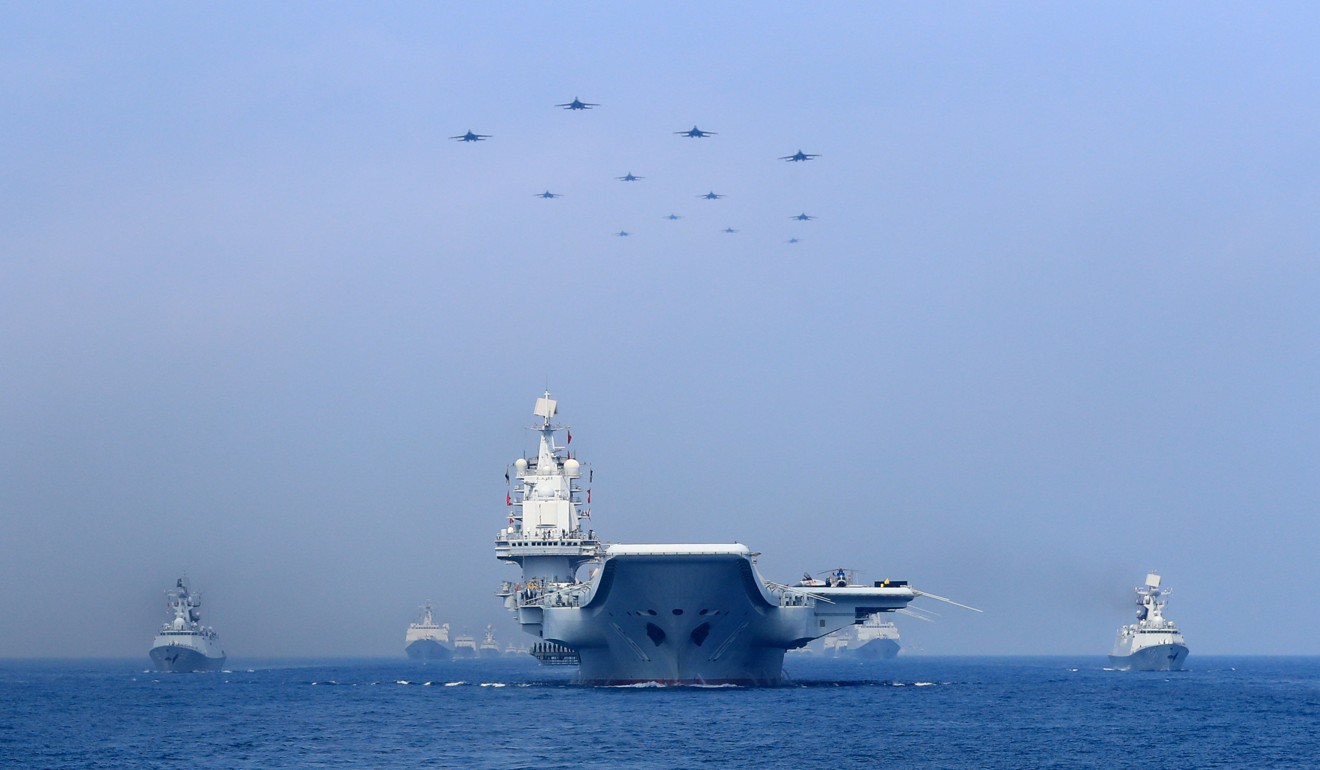
It is unclear how the Turkish government plans to proceed on the new canal: whether it will impose a new limit on warships or perhaps seek a revision of the Montreux Convention to include the man-made canal.
Kanal Istanbul is Erdogan’s pet project and he faces crucial presidential and parliamentary elections in June.
The cost is daunting for a country where the economic outlook has deteriorated. The Turkish lira has hit record lows against the US dollar and Turkey’s rating has been downgraded to “junk” status by major credit agencies.
One point of consensus is the need for Turkey to maintain stability through the Montreux Convention and some limit on warships for the new canal, to avoid triggering an arms race in the Black Sea region.
“Circumventing Montreux would be a big mistake,” said one maritime broker in Istanbul, who preferred to remain anonymous.
“Peace regulations would not apply and warships could cross. Montreux should be sustained at all costs.”